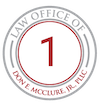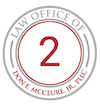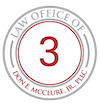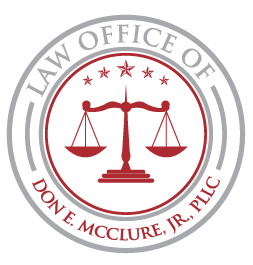
If I wasn’t wearing my seatbelt at the time of the accident, can I still file a claim?
We get this question a lot, since so many people are worried that they will be blamed for their own injuries just because they weren’t wearing their seatbelt, even though the accident was clearly not their fault. While it is extremely important – and required under Texas law – to wear your seatbelt, it doesn’t mean that you can’t file a claim if you weren’t wearing one at the time of an accident. What will apply, however, is the Texas law of comparative negligence, which determines the damages that are paid out based on how responsible you are for your own injuries because of non-seatbelt use. The rules of comparative negligence state:
a. If it is discovered that you share negligence (for example, you were not wearing your seatbelt), but it is less than 51 percent of the total responsibility, the compensation you win will be reduced by whatever the percentage you are deemed responsible for.
b. If you are found negligent of more than 51 percent of the total responsibility or higher, you will not be able to recover any damages.

Forgiveness can actually help you sleep better
A study in the Journal Psychology and Health found that there is a correlation between better sleep and the ability to forgive others and yourself. The research found that Forgiveness of self and others “may help individuals leave the past day’s regrets and offenses in the past and offer an important buffer between the events of the waking day and the onset and maintenance of sound sleep.” Inability to “let go” leads to unpleasant feelings of anger, blame, and regret, which is distressing and can disrupt sleep. It sounds like forgiveness now has an additional benefit besides just calming the heart and mind. We should all try it!

Hairstylists and barbers can help in the fight against skin cancer
Not many people get a regular look at your head and neck the way your hairdresser or barber does. We depend on them every month or so to help us look our best, but their extra set of eyes can also have another important purpose: screening for skin cancer. The president of the Skin Cancer Foundation, Dr. Deborah Sarnoff, started the Head’s Up! educational program that promotes salon-held training sessions for skin cancer surveillance after her own hairdresser noticed a black spot on her scalp. Even though she is a clinical professor of dermatology, she was unable to recognize the spot on her own body, even using two mirrors. Her advice to anyone who works in a salon setting is, “If you see something, say something! Any lesion, spot, bump or funny-looking mole should be brought to the client’s attention. Feel free to take a photo with the client’s cell phone or point out the area in a mirror. Don’t worry about offending your clients, but try not to alarm them, either. Simply point out the suspicious-looking spot, then suggest they have a dermatologist look at it. This could be lifesaving advice.” It’s especially important since scalp melanomas are the most lethal of all melanomas. For more information on how you can protect your clients, check out the Heads Up! website.

